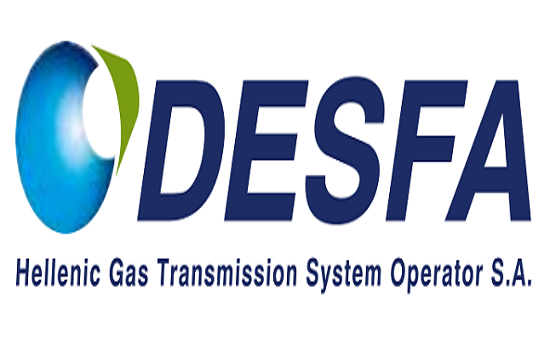DESFA Privatization: EBRD Is In, The Dutch Are Out
- Mariana Liakopoulou
- Feb 23, 2018
- 4 min read

On February 16, Greece’s privatization agency (Hellenic Republic Asset Development Fund -HRADF) made public the details regarding submission of two binding offers for the acquisition of a 66% stake in the Greek gas grid operator DESFA, 31% of which is held by HRADF and 35% by Hellenic Petroleum (HELPE). Progress on DESFA sale forms part of those prerequisite actions needed to materialize in order for the country to successfully conclude the third review of its bailout program, along with privatizations of a 65% of the incumbent gas utility DEPA, a state-owned 35% of HELPE (possibly increased through partial selling of a 45.47% stake controlled by Paneuropean Oil, a member of Latsis corporate group), and the privatization of a 17% of the main power utility PPC.
One of the two binding offers was put forward by a consortium comprised of the Italian natural gas infrastructure company Snam, Spain’s energy company and European TSO Enagas and the Belgium-based TSO Fluxys. The three companies are included among the shareholders of the Trans Adriatic Pipeline, together with BP, SOCAR and Axpo. In the non-binding demand indication phase of the tender, they were joined by the Dutch natural gas infrastructure and transportation firm Gasunie, in a consortium led by Snam (50%). The state-run Gasunie remained firmly interested in DESFA’s 66% purchase from the time when SOCAR’s negotiations with the Greek government floundered, because of the latter’s legislation for a rise in the operator’s gas tariffs by a lower amount than what was expected by the Azerbaijani company. The Snam majority-owned consortium was considered to be the favorite of this renewed DESFA tender, as its win could pave the way for the Greek TSO to undertake operation and maintenance activities on TAP, thus increasing its income and extending the spectrum of its non-regulated responsibilities. This way, TAP A.G. would equally cut back on spending by exerting majority control over an already existing operating entity, while Gasunie would most probably make it into the pipeline’s shareholding. However, in a quite unforeseen move, Gasunie decided to withdraw from the Snam-headed consortium a day prior to the expiration of the deadline set by HRADF for the submission of non-binding offers. The particular decision could be attributed to the rightward shift observed in the recently sworn-in coalition government of the Netherlands, given that all shares of Gasunie are held by the Dutch state, represented by the Ministry of Finance. Therefore, the departure of the former Eurogroup president and Finance Minister Jeroen Dijsselbloem of the Labor Party from PM Marc Rutte’s new cabinet, and its succession by the Christian Democrat Wopke Hoekstra, inevitably resulted in a change in the governmental mindset with respect to investment plans in the less economically robust Mediterranean region.
The second offer was presented by a consortium made up of the Galicia-based Regasificadora del Noroeste, Romania’s TSO Transgaz and the European Bank for Reconstruction and Development (EBRD). In the previous stage of the tender, the Spanish LNG terminal owner was thought of as an outsider. Nevertheless, the latest inauguration of its partnership with Transgaz, who had previously attempted to enter the acquisition process in a joint venture with GRTgaz, an Engie affiliate, but was excluded due to violation of the Third Energy Package directives on ownership unbundling of TSOs, proved enough to break the mold. In addition, the two firms secured a last-minute participation of the EBRD, estimated at over 30%, raising the Greek government’s hopes of the tender surpassing the €400M ($492.7M) mark, agreed upon with SOCAR back in 2016. EBRD’s emergence in the DESFA tender triggered a negative reaction from the Italian side, who points out the creation of unfair conditions of competition in the tender, while propounding the argument that, in case of the second consortium’s win, liquidity in the Greek economy will not be ensured, as the three bidders are reportedly going to finance their buy with the use of a loan issued by Greece’s systemic banks.
DESFA is for the time being a rather profitable corporation, according to the rise noted in its earnings for 2016, while the finalization of the ongoing second upgrade of the Revithoussa LNG terminal by September 1 will to a certain extent add to its value. That said, one cannot of course guarantee that the operator’s ultimate sale price will necessarily skyrocket far beyond SOCAR’s €400M rate. But looking at the broader picture, it is deduced that a stake in DESFA clearly carries a certain geo-strategic importance for both bidding groups, enabling any winning party to have a say in the distribution of natural gas from the Caspian and the Middle East to Europe. Snam, Enagas and Fluxys, aside from their investment in TAP, have by now built up much experience in relation to their interaction with non-EU markets. Back in the 2000s, France’s Technip and Snam had been awarded a $770M contract for the construction of a fertilizer complex in Oman. In the early nineties, Enagas became one of the operators of the Maghreb-Europe (MEG) pipeline, running from Algeria to Portugal. Finally, Fluxys’ terminal in Belgium’s Zeebrugge outer port imports LNG mainly from Qatar. Qatargas has also been a regular LNG supplier to Enagas. Therefore, the impression is conveyed that the Spanish-Romanian alliance, with the EBRD’s support, could take advantage of DESFA as a bridge to justify further investments in Greece’s eastern neighborhood, in case of them winning the tender. Still, competition is expected to remain intense in this privatization saga, until rival consortiums play their last cards.
Partially available online at: http://www.caspianpolicy.org/energy/caspian-energy-insight-february-21-2018/#5



Comments